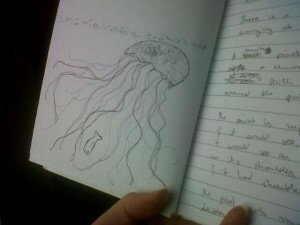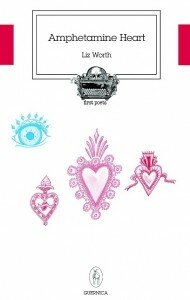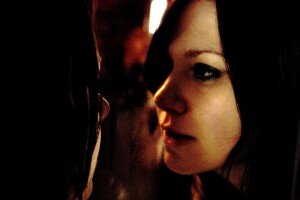Myth: the essence of a poem is expressing emotion.
Before I get all grr on “emotional poetry,” I want to say this: I’m all about poeming in the diary, discussing heartbreak and daily doings, but that doesn’t make a poem great. And great poems can express big feelings. In fact, any good piece of writing should evoke emotion in the reader. It’s what connects the reader to the work. But just as in novels and essays and all that prosey stuff, a good poem has a story first.
A story has a beginning, a middle, and an end. A story uses sensory detail, characterization, setting, and narrative to work its magic on the reader. And why should a poem be any different? A story is all the good stuff that brings us around to the feelings. It has to come first. It’s like Step 1. And much like Ikea furniture, it’s a good idea in poetry to perform step 1 before trying to install step 2.
So my theory is this: A good poem isn’t about emotions, it makes the reader emote. It evokes emotion in the reader by using emotive imagery. And to achieve this, you’ve gotta start at ground level or else your whole poem is going to fall apart just like a poorly furnished college apartment.
Now, emotional poetry is definitely a thing and a lot of writers love it and it’s where a lot of us start as poets. There’s a reason I recommend Sylvia Plath to many beginning poets trudging their way through the perils of high school. I think she is the original emo kid — she’s got her heart on her sleeve and she’s not afraid to use it. But the thing that Sylvia has that a lot of journal poetry doesn’t is the sense of story that I already mentioned, the imagery and sensory detail. Plus, you know, that haunting voice. Here’s an example:
“April 18″
the slime of all my yesterdays
rots in the hollow of my skull
and if my stomach would contract
because of some explicable phenomenon
such as pregnancy or constipation
I would not remember you
or that because of sleep
infrequent as a moon of greencheese
that because of food
nourishing as violet leaves
that because of these
and in a few fatal yards of grass
in a few spaces of sky and treetops
a future was lost yesterday
as easily and irretrievably
as a tennis ball at twilight
–Sylvia Plath
SO. Love or hate Sylvia Plath, we can all agree on a two things:
1. She tells a story with her poem. It has a beginning, a middle, and an end.
2. She makes us feel things.
Imagine if the poem were simply a list of feelings, though. Would that be interesting? I don’t think so. Anyone can list feelings and use a thesaurus to come up with a few extra S.A.T. words for “grumpy” and “tears” and throw in some linebreaks and call it a poem. What I want from a poem when I’m reading is a reason to feel for the narrator, a sense of what the narrator feels and why. And, duh, I want that story.
So, Sylvia Plath nails it with that #2. She makes us feel things. And she uses all those tricks that I believe make a poem work. I mean, wow, that first couplet? It’s dark. It’s creepy. And it’s so, so sad. Even better, in this and in so much of Plath’s poetry, there is space for the reader to go in, suck in the words, swirl them around in his mouth, and taste what he needs to taste. He may or may not like the poem, but he hasn’t just had to consume word vomit. Which, really, is what happens if you just let your feelings dance around unhinged while writing.
I’m sorry, folks. But your word vomit — or soul vomit, as I’ve come to think of some of the more, er, emotional poetry that, yes, even I wrote back in the day — belongs in a first draft or in a journal.
And really, I have to wonder, where does this myth that poetry = emotion come from? Is it our schools, where overworked and underpaid teachers are given a single week in which to teach poetry by the Powers That Be? Is it the fact that contemporary works are physically inaccessible to young people and are, indeed, less read than, say, Shakespeare’s soppy (if lovely) sonnets? Regardless, I’d say that emotions in poetry is a good thing, and I’d encourage any poet endeavoring to make his readers feel something to use his words to do just that. Make the reader feel it.







